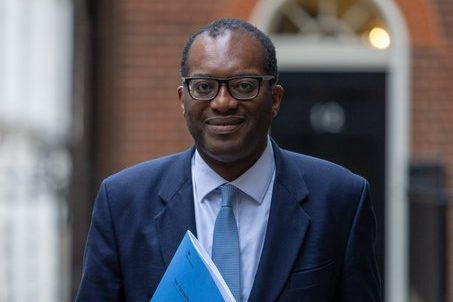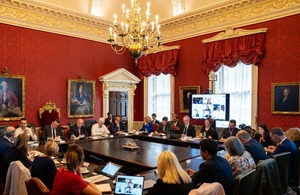Tax cuts and policy cancellations dominate Kwarteng’s mini-Budget

New Chancellor Kwasi Kwarteng has announced a slew of tax cuts and policy cancellations as he set out the free-market credentials.
Kwarteng, the sixth Conservative Chancellor in 12 years, called for “a new approach for a new era” – although he also called to “make work pay” for benefit claimants, scrapped the cap on bankers’ bonuses and scrapped the 45p income tax rate.
The “fiscal event” was not a Budget in name, seemingly to avoid the Office for Budget Responsibility publishing its forecasts. But it was definitely a Budget in the scale of the measures announced by the Chancellor.
He said: “We are securing our place in a fiercely competitive global economy with lower rates of corporation tax and lower rates of personal tax.
“We promised to privatise growth, we promised a new approach for a new era, we promised to release the enormous potential of this country. Our growth plan has delivered all those promises and more.”
Kwarteng set out the platform which his party will hope can boost the economy and their election prospects, but he also set about reversing Conservative policies and promises.
Shadow Chancellor Rachel Reeves called the 25-minute speech a “comprehensive demolition of the last 12 years”.
Kwarteng confirmed the reversal of the planned National Insurance rise, which had been pre-announced last night, cancelled the planned rise of corporation tax which now stays at 19%, and binned planned rises in alcohol duties.
He also maintained the £1m threshold for the Annual Investment Allowance, which had been due to fall. This gives 100% tax relief to businesses on their plant and machinery investments.
The Chancellor’s only mention of levelling up – a central economic policy of the last Government – was to say “if we really want to level up, we need to unleash the power of the private sector”.
He confirmed the Government is in “early discussions” with 40 places to create investment zones, which will have special tax incentives for businesses. There will also be a list of infrastructure projects published that will be supported.
Tax changes included bringing forward the planned cut in income tax, from 20p to 19p, to this April, as well as abolishing the 45p rate.
Stamp duty was cut by doubling the threshold to £250,000 and increasing other thresholds for first-time buyers’ relief. He also promised to “liberalise” planning rules.
Yesterday the Bank of England warned the UK economy was in recession, raised interest rates by 0.5 percentage points to 2.25% and reinforced expectations of further increases.
One direct impact of interest rate rises is to make mortgages more expensive, and can cool demand. But the stamp duty announcement appears designed to fuel the housing market, at a cost of billions of pounds.
The Chancellor faces a storm of problems, from the long-standing productivity challenge, through the self-inflicted economic harm of Brexit, the pandemic disruption and the political stasis of the summer that saw Government decision-making essentially put on hold for months.
Ahead lies a continuing energy crisis, a cost of living crisis, rising levels of company insolvencies, a potential NHS crisis, and whatever else gets added to his in-tray by events.









